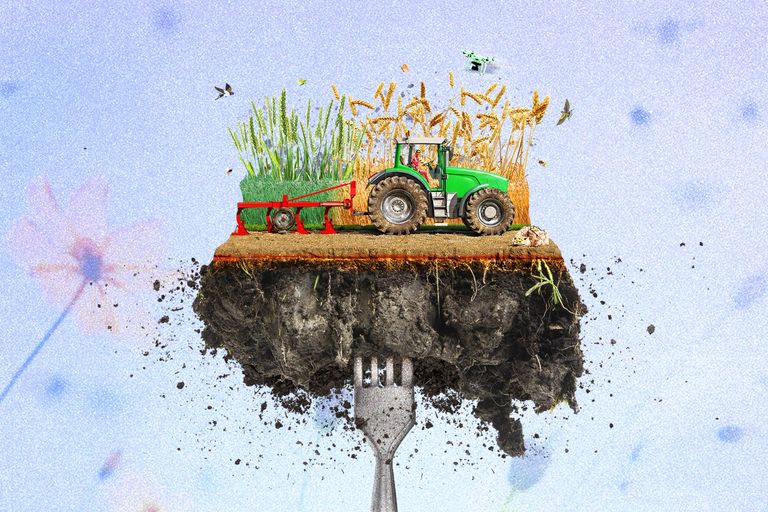Related topics
Regenerative Landwirtschaft und globale Klimaerwärmung
Mit regenerativer Landwirtschaft kann die globale Klimaerwärmung wirksam gebremst werden, wenn die Umsetzung an die jeweiligen Standorte angepasst wird. Dies war Konsens unter den Referierenden aus Politik, Verwaltung, NGOs, Wirtschaft und Wissenschaft an einem öffentlichen Anlass.
Image: Andres Jordi
Regenerative Landwirtschaft: Potenzial ja, Quick fix nein
Der Konsens war überraschend gross: die «regenerative Landwirtschaft» habe ein beträchtliches Potenzial. Sie müsse aber zwingend so umgesetzt werden, dass sie an einem bestimmten Standort funktioniere. In diesen Punkten war sich das breit aufgestellte Panel am Anlass «Regenerative Landwirtschaft: Schlüssel gegen die Klimaerwärmung?» am 20. Juni 2023 einig.
Image: EASAC
Regenerative Landwirtschaft: Schlüssel gegen die Klimaerwärmung?
Regenerative Landwirtschaft bezeichnet eine Landwirtschaft, die die Regeneration des Bodens in den Mittelpunkt stellt und bestehende Ansätze der ökologischen Landwirtschaft integriert. Sie verbessert die Böden, erhöht Ernährungssicherheit und wirkt sich positiv auf den Erhalt von Biodiversität und die Hochwasserregulierung aus. Diese positiven Effekte gehen im Wesentlichen auf eine Anreicherung der Böden mit Humus zurück. Das Potenzial in der Schweiz ist sehr gross: der Humusgehalt der Böden liesse sich um mehr als 4% pro Jahr erhöhen – zehnmal so viel wie im internationalen Kontext –, und dabei blieben die Erträge erhalten oder liessen sich sogar steigern. Da Humus CO2 speichert, dämpft die regenerative Landwirtschaft auch die Klimaerwärmung. Die UN-Klimakonferenz 2015 nannte deshalb die Erhöhung des Humusgehalts in Böden als eine von sechs sogenannten negativen Emissionstechnologien.
Image: EASAC
«Um den Klimawandel zu bekämpfen, müssen wir die Qualität des Bodens verbessern, auch in der Schweiz»
09.11.2022 – Böden speichern grosse Mengen an Kohlenstoff in Form von Humus. Mit neuen landwirtschaftlichen Praktiken kann der Humusgehalt erhöht und damit mehr CO2 im Boden gebunden werden. Immer mehr Akteure erkennen das Potenzial und die vielfältigen positiven Effekte. Für die Umsetzung sind nebst der Landwirtschaft auch alle anderen Akteure entlang der Produktionskette gefragt.
Image: zvg
